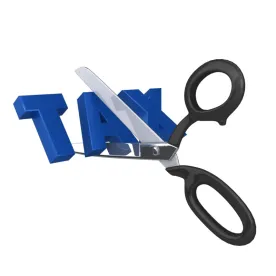The Senate Proposal – Some Good News.
The Senate Finance Committee released its proposed tax bill (the “2017 Senate Tax Bill”) late on November 9, 2017. Unlike the 2017 House Tax Bill (defined below), the 2017 Senate Tax Bill would maintain current private activity bond provisions without modification (although, like the 2017 House Tax Bill, it would eliminate advance refunding bonds for 501(c)(3) organizations and governmental bonds).
Like the 2017 House Tax Bill, the 2017 Senate Tax Bill preserves the “9%” low income housing tax credit. Unlike the 2017 House Tax Bill, the 2017 Senate Tax Bill, by preserving the ability to issue Section 142(d) housing bonds, also preserves the use of the “4 %” low income housing tax credit.
However, the 2017 House Tax Bill remains alive and its potential ramifications with respect to affordable housing finance are addressed below. How the differences between the two proposals will be resolved remains to be determined.
The House Proposal.
Although the tax bill (the “2017 House Tax Bill”) as proposed the week of Nov. 1, 2017, by the House preserves the Low Income Housing Tax Credit, if enacted it would dramatically reduce financing options for single and multifamily housing in the future. The 2017 House Tax Bill proposes to eliminate private activity bonds, including Section 142(d) bonds for affordable residential rental housing and Section 501(c)(3) bonds for low income housing, senior housing, and supportive care facilities. It would also eliminate single family housing mortgage loans financed by private activity bonds after Dec. 31, 2017, and disallow mortgage credits for homeowners with respect to mortgage credit certificates issued after Dec. 31, 2017.
The 2017 House Tax Bill contains no transition rules. Thus, as currently drafted, it would not be possible to refund on a tax-exempt basis an outstanding qualified private activity bond after such date, and any substantial modification of an outstanding qualified private activity bond that results in a reissuance after Dec. 31, 2017, for federal income tax purposes, would cause the interest on such bond to become includable in gross income. In addition, if a draw-down bond issue has not been fully drawn by Dec. 31, 2017, interest on draws after such date would be treated as federally taxable, as would interest on commercial paper newly issued or rolled over after such date. Issuers, borrowers and lenders can and should examine what steps can be taken to protect the tax-exemption of existing draw-down issues as well as of certain multimodal issues, especially private placements. They might also consider what bond and mortgage credit certificates they can issue this year.
Residential Rental Facilities.
Under the 2017 House Tax Bill, private activity bonds cannot be issued on a tax exempt basis after Dec. 31, 2017. In the housing sector, this would eliminate both bonds issued under Section 142(d) for the benefit of for-profit borrowers and under Section 145 for non-profit borrowers. Housing for low and moderate income persons would no longer have the benefit of tax-exempt financing. In addition, housing for the elderly and disabled and other forms of specialty housing and supportive care traditionally financed with Section 501(c)(3) bonds would no longer be able to be bond-financed. While the Low Income Housing Tax Credit is preserved, only the “9%” credit will be available; with the elimination of Section 142(d) bonds, the “4%” credit will no longer be available.
No Transition Rule for Refundings.
Existing bond-financed multifamily housing projects would not be able to be refunded or refinanced on a tax-exempt basis in the future. Furthermore, any substantial modifications or restructurings of existing tax-exempt housing bonds which would cause a “reissuance” for federal tax purposes would become taxable upon such amendment. Should the 2017 House Tax Bill become effective, among other things, particular care will need to be taken to analyze the tax implications of changes to the bond documents and also less obvious future changes to the bond terms, such as allowing more time to convert to permanent loan status, interest rate re-setting provisions in connection with interest rate mode conversions, changes to amortization schedules, and waivers of rights of bondholders. For example, if an existing interest rate re-setting provision in a direct purchase structure depends upon the agreement the bondholder and the borrower or issuer to determine the rate, or if one party has an option to modify the rate but the other party has a right to tender or require tender of the bond, a rate change would probably result in a “reissuance” of the bond in question. If the documents need to be revised to allow future rate changes without causing a reissuance, the parties may wish to consider adding a rate-setting mechanism that does not depend on an agreement of the parties, or the parties may wish to fix the rate now.
Draw-Down Bonds.
Draw-down private activity bonds are issues of bonds where only a portion of the bonds are issued for federal income tax purposes on the issue date of the issue. Draw-down bonds have been popular for construction issues and other issues where proceeds are needed over a period of time. They are particularly popular in tax-exempt multifamily bond transactions. They are generally privately placed issues for which the parties wish to avoid the negative arbitrage associated with an unspent construction fund earning less than the bond yield. Although the “issue” may be treated as issued for some federal income tax purposes on the date that more than $50,000 of bonds is drawn down, each subsequent draw is treated as a separate bond with its own issue date for purposes of determining whether interest on such draw is tax-exempt. To avoid taxable interest bond draws (and to ensure that the “50% test” is met for purposes of receiving the “4%’ low income housing tax credit), the borrowers should be prepared to draw-down all bond draws prior to year-end 2017.
Single Family Housing Bonds and Mortgage Credit Certificates.
State and local housing finance agencies have long financed mortgage loans for low and moderate income first time home buyers using tax-exempt bonds and mortgage credit certificates, among other things. Since the financial crisis in 2008, financing mortgage loans with bonds has become less economically viable given the generally low mortgage rates available commercially and the appetite of Fannie Mae and Freddie Mac to acquire mortgage loans in the secondary market. However, mortgage credit certificate programs have been gaining popularity. Under the 2017 House Tax Bill, single-family mortgage bonds could not be issued after December 31, 2017, either to refund existing bonds or to make new mortgage loans. Additionally, the 2017 House Tax Bill provides that no credit will be allowed for any mortgage credit certificate (MCC) issued after Dec. 31, 2017. Thus, even for qualified MCC programs existing on Dec. 31, 2017 that would otherwise be permitted to issue MCC’s in calendar years 2018 and 2019, no MCC’s can be issued after Dec. 31, 2017.
Conclusion.
The future for affordable housing finance remains unclear. The 2017 House Tax Bill and the 2017 Senate Tax Bill still need to go through the legislative process and must be reconciled. The fate of private activity bonds lies with this process. Legislative lobbying may or may not bring about the addition of some transition rules during that process, as well. Nevertheless, issuers, borrowers and lenders should not count on there being no change to the relevant provisions. They can and should consider how to take steps now to preserve the tax-exemption of existing private-activity debt and programs and use up remaining allocations. To such end, they should review outstanding bond documentation and evaluate how best to maintain the tax-exemption of interest on outstanding private activity bonds, in particular draw-down programs, in the long term in case the 2017 House Tax Bill provisions become law.





 />i
/>i

